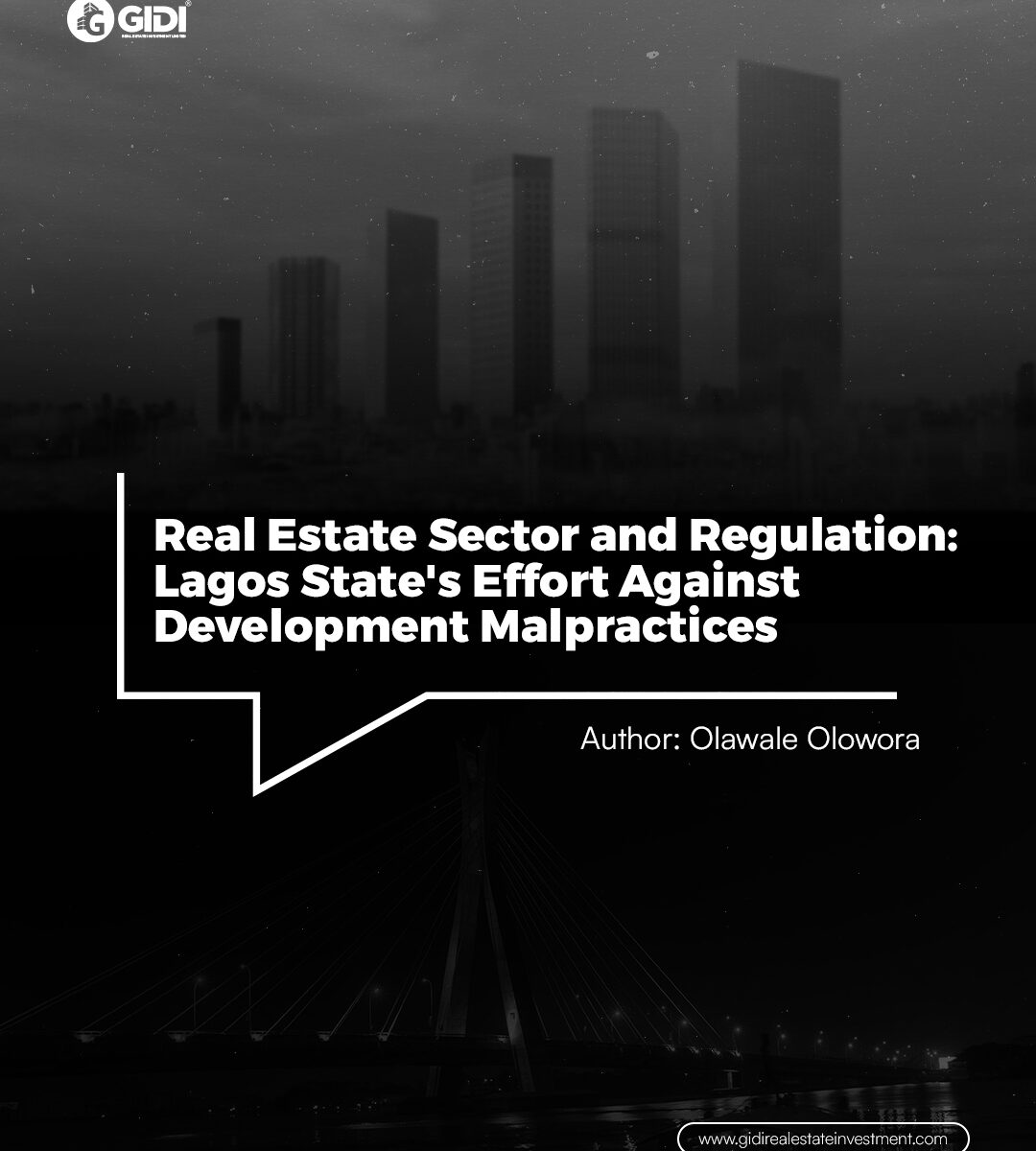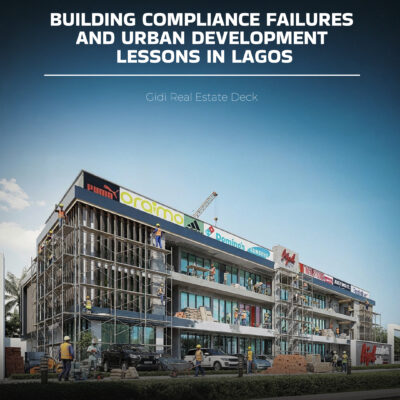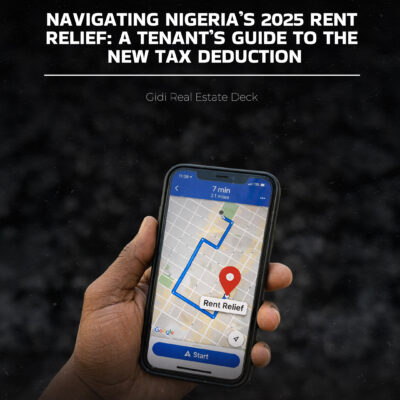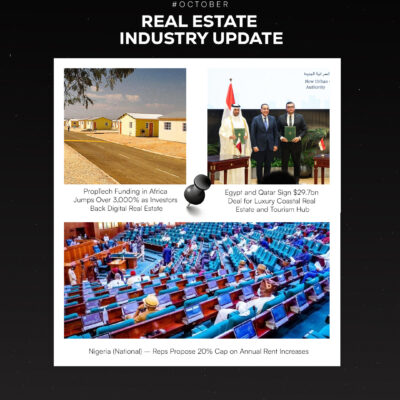Regulation and Real Estate Sector: Lagos State’s Efforts Against Developmental Malpractice
Lagos State, Nigeria’s real estate capital, has witnessed explosive growth in its real estate sector. Home to over 20 million people and counting, Lagos faces a pressing demand for housing and commercial space. However, along with this boom has come a troubling rise in “developmental malpractice,” a concept that encompasses various unethical, illegal, or unsafe practices in property development and transactions. These malpractices, ranging from collapsed buildings that claim lives to fraudulent property schemes that swindle hopeful tenants and buyers, threaten public safety and erode trust in the real estate market.
In response, the Lagos State government has embarked on sweeping regulatory reforms and enforcement measures to sanitise the sector. Authorities are clamping down on rogue developers, enforcing building standards, and introducing new laws to hold practitioners accountable. The goal is clear: curb the excesses that have plagued the industry and protect citizens’ investments and well-being. This article examines the state’s ongoing efforts to combat real estate malpractice, exploring the regulations, initiatives, and challenges in Lagos’s quest to ensure responsible development.
The Menace of Developmental Malpractice
“Developmental malpractice” in Lagos covers a range of ills in the building and housing industry. One glaring issue is the epidemic of building collapses caused by substandard construction and disregard for regulations. In 2022 alone, Lagos reportedly saw about 20 building collapse incidents, a part of a nationwide problem that has repeatedly made headlines. Over the years, dozens of structures have crumbled in the city, often because contractors cut corners, used inferior materials, or built without approved plans. These disasters have led to tragic loss of life and have raised serious questions about the enforcement of safety standards.
Equally troubling are the fraudulent practices in real estate transactions. The city’s severe housing shortfall (estimated at well over 2 million units) has created an environment where desperate home seekers can fall prey to scams. In some notorious cases, dubious agents have rented or sold the same property to multiple innocent people, absconding with millions of naira in deposits. For instance, in one Lagos suburb, nearly 200 hopeful tenants paid advance rent for apartments in a single building, only to discover the offer was a sham after the agent vanished. Similar schemes involve land being “sold” to several buyers at once, or developers collecting money for housing projects that never materialize. These scams have defrauded hundreds of families, leaving them financially devastated and deeply mistrustful of the market.
Another facet of developmental malpractice is the problem of land grabbing and illegal developments. For years, local thugs (infamously known as omo onile) and unscrupulous entrepreneurs have forcefully taken over lands or erected buildings in prohibited areas. Such activities cheat rightful landowners and lead to chaotic and unsafe urban growth. There have been cases of structures built on drainage channels, floodplains, or other restricted zones, posing environmental hazards and exacerbating flooding. All these undermine orderly development in Lagos. By the late 2010s, the magnitude of the problem demanded a strong government response.
Building a Regulatory Framework
To address these challenges, Lagos State has put in place a more robust regulatory framework for the real estate sector. A cornerstone of this effort was the enactment of the Lagos State Real Estate Regulatory Authority Law in 2022. This law established the Lagos State Real Estate Regulatory Authority (LASRERA) as the agency responsible for overseeing real estate transactions and professional conduct. Under the law, anyone acting as an estate agent, property developer, or related practitioner in Lagos must register with the state. LASRERA maintains a public registry of licensed practitioners and enforces a code of ethics designed to curb sharp practices. The agency is also empowered to mediate disputes between buyers, sellers, tenants, and agents, offering a faster, out-of-court route to justice for victims of property fraud. In essence, the law aims to protect Lagos residents from land scams and other fraudulent dealings by ensuring that only genuine, accountable professionals operate in the market.
The creation of LASRERA actually began a few years earlier, when the government upgraded its old Real Estate Transactions Department into a full-fledged authority. In 2020, as part of Governor Babajide Sanwo-Olu’s reforms to transform Lagos into a 21st-century economy, the state launched an official LASRERA website and registration portal. This online platform allows citizens to verify the credentials of real estate agents and developers and provides a channel for reporting complaints. It was noted that a unified database of practitioners would help “checkmate the activities of fraudsters” in the sector by exposing fake agents. By building this digital registry and licensing system, the state aims to identify unqualified or rogue operators and either bring them into compliance or shut them down.
Beyond the new real estate agency law, Lagos has other regulations targeting development malpractice. The state’s urban planning and building control laws require that any construction project obtain proper permits and meet safety standards. Agencies such as the Lagos State Physical Planning Permit Authority (for plan approvals) and the Lagos State Building Control Agency (for construction oversight) are tasked with enforcing these standards on the ground. There is also the Lagos State Property Protection Law of 2016, which criminalises forceful land grabbing and established a special Task Force on Land Grabbers to prosecute offenders. Together, these laws and institutions form a multi-pronged framework meant to ensure that property development in Lagos is carried out legally, safely, and transparently.
Enforcement Actions and Government Initiatives
Having the right laws is one thing; enforcing them is another. Lagos State authorities have signaled a strong commitment to clamp down on violators in the real estate arena through various initiatives. In 2021, the government inaugurated a 16-member Technical Committee on Real Estate Regulation tasked with recommending reforms and restoring public confidence. This committee, comprising government officials and industry stakeholders, was asked to develop policies for instituting global best practices in the sector and to suggest financial strategies to increase housing supply. One idea emerging from the committee’s work was to require better insurance coverage on building projects, so that if a structure fails, there is recourse to compensate buyers or tenants. Such measures are aimed at increasing transparency and fiscal responsibility in real estate, thereby attracting investment while protecting consumers.
Meanwhile, enforcement agencies have been stepping up actions on the ground. In late 2022, after a series of building collapse incidents heightened public concern, it was announced that the government would aggressively pursue and prosecute fraudulent developers and rogue estate agents. LASRERA acknowledged the “unprofessional practices” in the market, from shoddy construction to agents defrauding tenants, and vowed that the authorities were determined to “bring the culprits to book.” This public warning signaled to developers and agents that the era of lax oversight was ending.
Concrete actions have followed these words. The Lagos State Building Control Agency (LASBCA) has launched crackdowns on construction sites that violate safety rules. For example, in August 2024, LASBCA announced plans to shut down any building project not supervised by qualified professionals, to curb collapses and ensure quality. Inspectors began paying unscheduled visits to sites, and any project found without the required engineers, architects, or builders on site would be promptly sealed off, with the possibility of demolition if corrections are not made. Officials emphasized that property owners must engage licensed professionals with current practice credentials, underscoring that only safe construction will be tolerated in the state. In a related move, the government has not shied away from removing illegal structures: in 2025, authorities marked 39 completed buildings in a high-end Lekki estate for demolition because they were built along a riverbank right-of-way. By ordering the teardown of houses erected in prohibited zones, the state demonstrated its willingness to reverse wrongful developments in order to prevent future hazards like flooding.
The fight against land grabbing has also intensified. Lagos’s Task Force on Land Grabbers, operating under the Ministry of Justice, has handled a flood of petitions from citizens whose properties were threatened or seized by racketeers. As of early 2025, officials reported that the task force had received well over 7,000 petitions in recent years, leading to the arrest of more than 200 suspected land grabbers and dozens of ongoing prosecutions.
Through these efforts, the state is signaling that the era of omo onile extortion and forcible land takeover is being brought to an end. From fraudulent tenancy schemes to unsafe construction and land theft, the government’s multi-faceted enforcement drive is gradually reining in the most egregious abuses in Lagos’s real estate sector.
Protecting Homebuyers and Investors
All these regulatory measures are ultimately aimed at safeguarding the people and money involved in real estate. For everyday Lagosians searching for a home, a more structured and accountable market means a lower chance of being swindled or put in danger. The government has been carrying out public awareness campaigns urging residents to only deal with registered real estate practitioners and to be vigilant about offers that seem “too good to be true.” With the LASRERA database now in place, prospective tenants or buyers can verify whether an agent or developer is licensed and in good standing before committing their money. This added transparency makes it harder for fake property agents to operate unchecked, and it gives consumers a tool to protect themselves. In the long run, fewer people falling victim to rental scams or fraudulent land sales will translate to greater public confidence in the property market.
Legitimate developers and investors, too, stand to benefit from a cleaner, more regulated industry. When the “rules of the game” are clear and consistently enforced, reputable companies can compete on a level playing field without being undermined by unscrupulous rivals. Serious investors are more likely to put money into Lagos’s housing sector if they believe their projects won’t be derailed by fraud, rogue operators, or sudden regulatory failures. Indeed, one of the explicit goals of the state’s reforms is to restore investor confidence. A well-regulated environment improves access to financing, as banks and financial institutions gain confidence that projects will adhere to approved plans and laws. Over time, these conditions could help attract both local and international funding for real estate development, spurring the construction of more housing units to meet Lagos’s huge demand.
There are early signs that these efforts are making a difference. Hundreds of real estate service providers have complied with the new registration requirements, signaling a growing acceptance of government oversight. LASRERA’s enforcement drives have led to the public sanctioning of some practitioners, which serves as a warning to others. Likewise, the visible actions taken against unsafe buildings have put developers on notice to prioritize quality or face consequences. While it will take time to fully rebuild trust, each successful prosecution of a fraudulent developer or prevention of an avoidable building collapse is a step in the right direction. For the first time in years, many Lagos residents and genuine investors feel that the authorities are on their side, working to ensure that buying or renting property doesn’t have to be a perilous gamble.
Challenges and the Road Ahead
Despite these bold steps, Lagos’s battle against real estate malpractices is far from over. Long-standing problems in the sector cannot be solved overnight, and some troubling incidents continue to occur. Building collapses, for example, have not been completely eliminated; observers note that enforcement on construction sites must be relentless to truly deter negligent builders. Likewise, rooting out entrenched fraudulent networks among property agents will require ongoing vigilance. The sheer size of Lagos’s property market, with thousands of new units, from luxury high-rises to informal apartments, emerging each year, makes oversight a daunting task. Regulatory agencies face capacity challenges, from limited manpower and resources to occasional interference and corruption, which can slow the progress of reforms. These hurdles mean that while laws and crackdowns have been launched, consistent implementation remains a work in progress.
Another challenge is ensuring that the various arms of regulation work in unison. Multiple bodies oversee different aspects of building and land use, and better coordination is needed so that no loopholes allow malpractice to slip through. The state will need to continue training and equipping these agencies, while also holding them accountable for tangible results. Public cooperation is equally crucial: residents and developers must embrace a culture of compliance.
This means seeking building permits and engaging certified professionals before construction, verifying property titles and transaction documents, and refusing to patronise unlicensed agents or partake in any “backdoor” deals. Whistleblowers and victims should also feel confident in coming forward, knowing that authorities will take their complaints seriously and offer protection. Changing mindsets and practices on such a scale is not easy, but it is necessary for lasting reform.
Going forward, Lagos may refine its strategies as it learns from ongoing efforts. The government could consider imposing even stiffer penalties on those who flout real estate laws, heavy fines or longer jail terms, to reinforce the message of zero tolerance. There is also room to leverage technology more deeply: for instance, using digital monitoring systems to track construction projects in real time, or integrating databases among the land registry, planning permit authority, and LASRERA to flag irregularities quickly. Better data and analytics could help predict and prevent issues (such as identifying buildings at risk of collapse through structural audits). Furthermore, continued engagement with professional associations and community leaders can help in creating buy-in, so that regulation is seen not as a hindrance but as a shared benefit for all.
Nevertheless, the efforts to date have set Lagos on a hopeful path. The government’s resolve to confront developmental malpractice, from high-profile crackdowns to quiet bureaucratic reforms, marks a significant shift toward accountability. If this momentum is sustained, the city can gradually rebuild trust in its real estate sector. The ultimate vision is a Lagos where homebuyers can sign a contract without fear of being duped, and where buildings stand tall for decades without incident, a city where development is synonymous with progress, not peril. Achieving that ideal will require perseverance and constant vigilance, but the foundation for a safer, fairer real estate market in Lagos has finally been laid.
References
1. Chambers and Partners – “An Overview of the Lagos State Real Estate Regulatory Authority Law 2022.” Article by SPA Ajibade & Co., 7 October 2024.
2. Nairametrics – “Lagos moves to regulate real estate practice, reform home ownership model.” Chike Olisah, 29 May 2021.
3. Vanguard News – “Building collapse: Lagos govt. vows to crack down on fraudulent developers.” 19 October 2022.
4. Vanguard News – “Nigeria witnessed 62 building collapse in 2022 — Report.” Juliet Umeh, 23 February 2023.
5. The Guardian (Nigeria) – “How real estate firms, agencies fleece prospective property buyers, tenants.” Victor Gbonegun, 10 May 2024.
6. Vanguard News – “Lagos to crack down on unsupervised building projects.” Olasunkanmi Akoni, 5 August 2024.
7. Tribune Online – “Lagos declares war on land grabbers, 60 on trial, 205 arrested, 7,500 petitions received.” Dayo Ayeyemi, 22 February 2025.
8. Vanguard News – “Lagos marks 39 buildings for demolition, issues quit notices.” Olasunkanmi Akoni, 8 May 2025.







